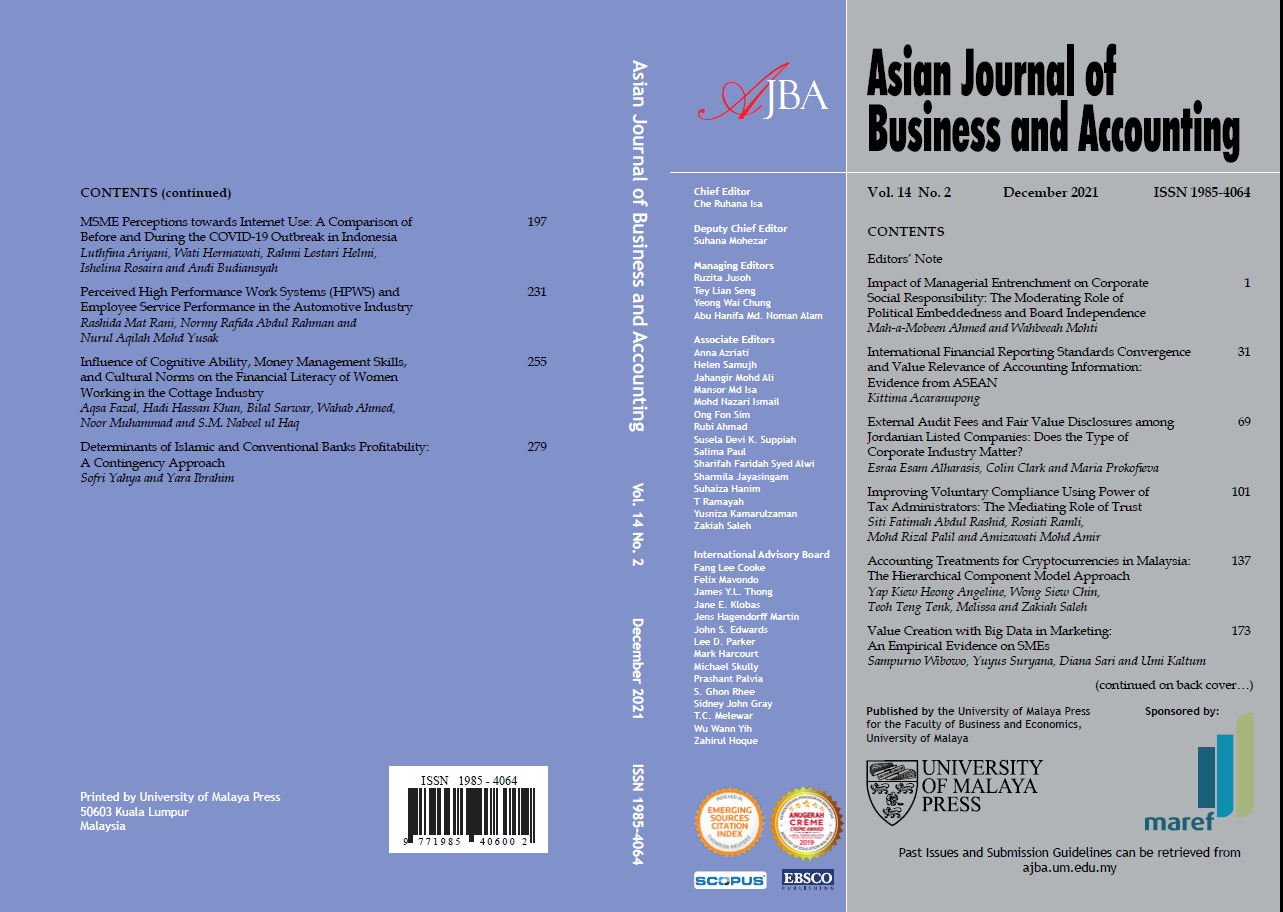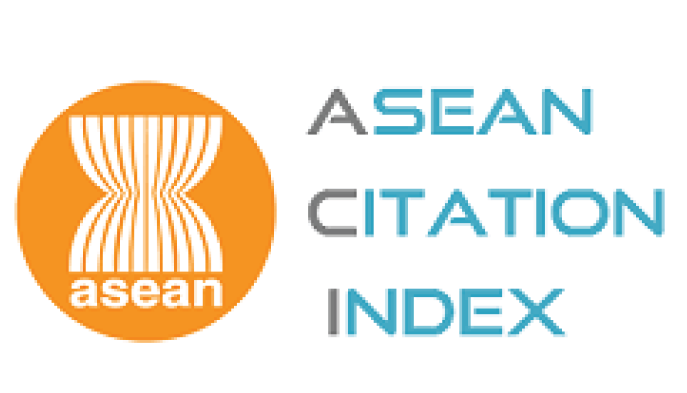Influence of Cognitive Ability, Money Management Skills, and Cultural Norms on the Financial Literacy of Women Working in the Cottage Industry
DOI:
https://doi.org/10.22452/ajba.vol14no2.9Abstract
ABSTRACT
Manuscript type: Research article
Research aims: This study investigates the impact of cognitive ability, money management skills, and cultural norms on the financial
literacy of women working in the cottage industry.
Design/Methodology/Approach: The study employs a crosssectional research design. Quantitative data were collected through
questionnaires and analysed using Smart-PLS.
Research findings: The results revealed that cognitive ability and money management was positively related to financial literacy. There was also substantial evidence to demonstrate the negative effect of cultural norms on financial literacy.
Theoretical contribution/Originality: The findings provide empirical evidence on the importance of cognitive ability, money management skills, and cultural norms on financial literacy among women in the cottage industry.
Practitioner/Policy implication: The government should emphasises policies that not only provide education, but also training and programmes that would improve cognitive functions. Cultural norms need to be changed in such a way that females being held accountable for financial decisions from an early age. There is a need to recognise, inspire, and empower women in the field of the cottage industry.
Research limitation/Implications: This study uses a cross-sectional research design. Future researches can supplement the existing
study by conducting studies with longitudinal research design and interviews.
Keywords: Cottage Industry, Cognitive Ability, Culture, Financial Literacy, Money Management Skills, Sustainability Development
JEL Classification: C83, C88, G53








